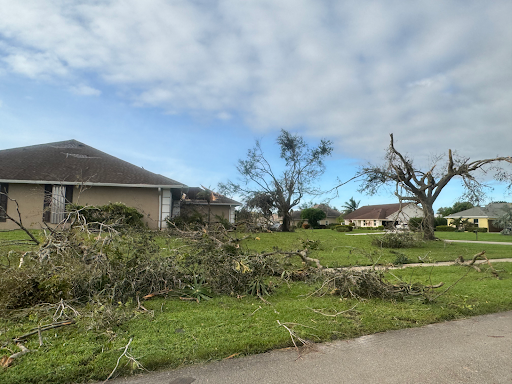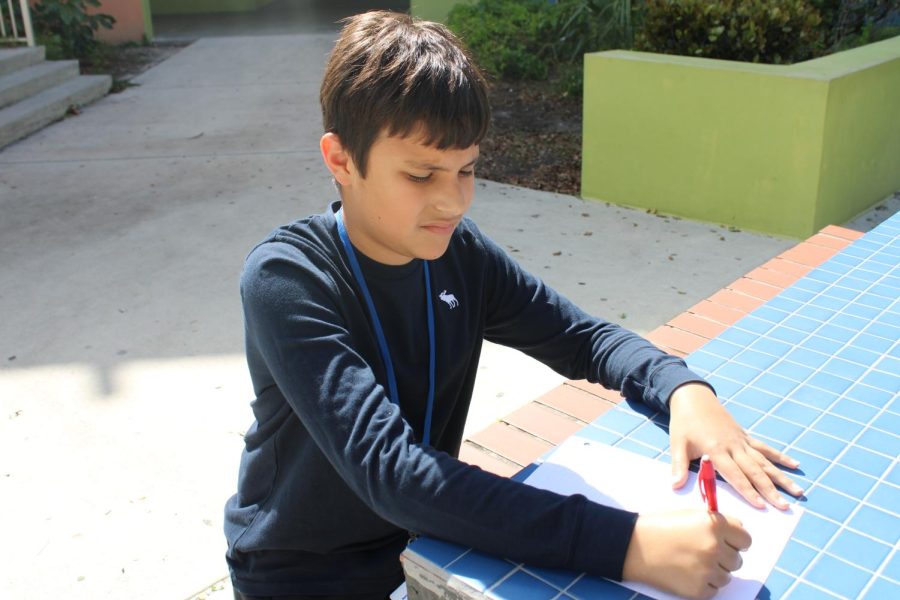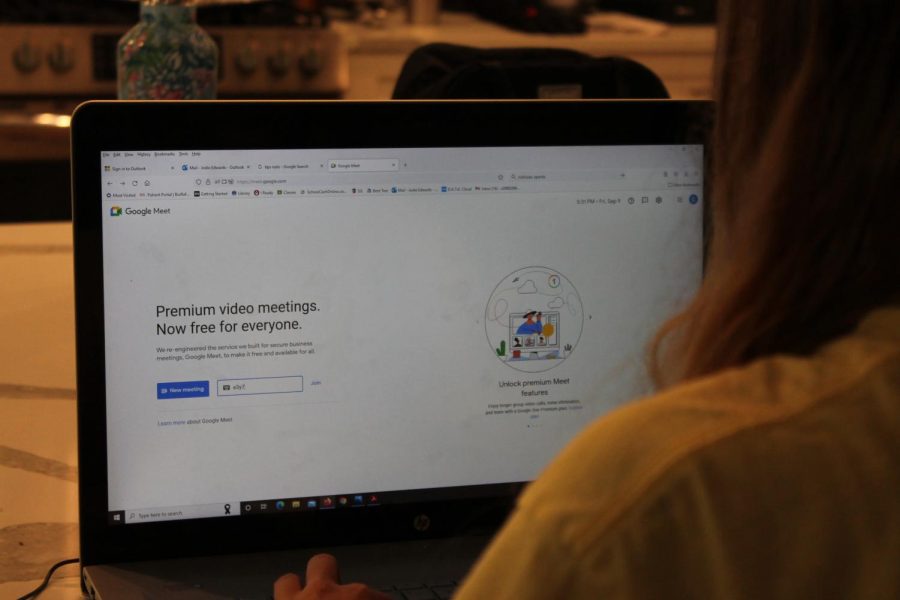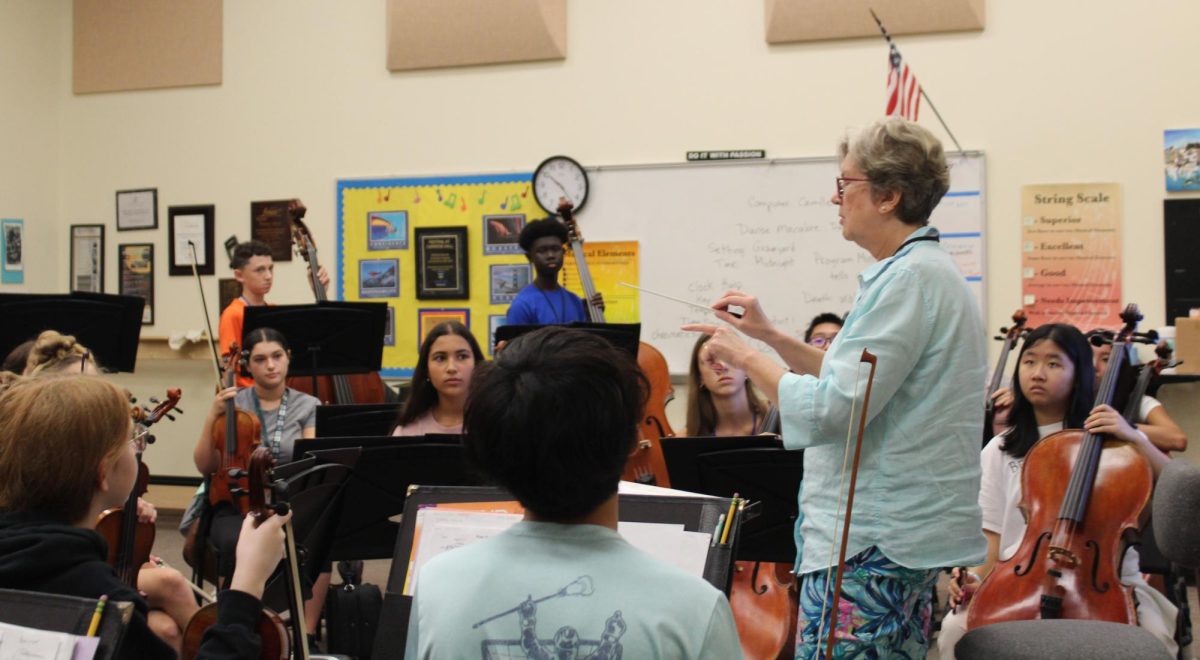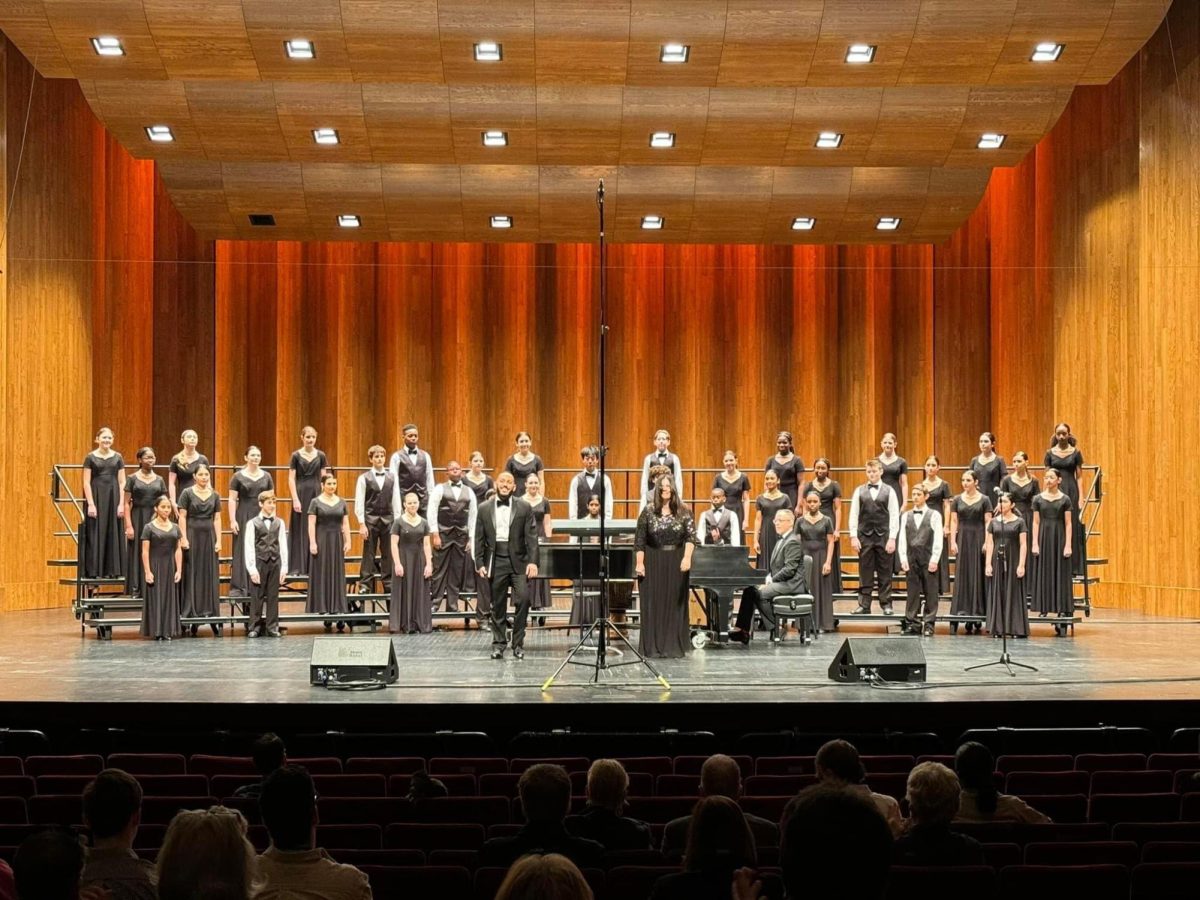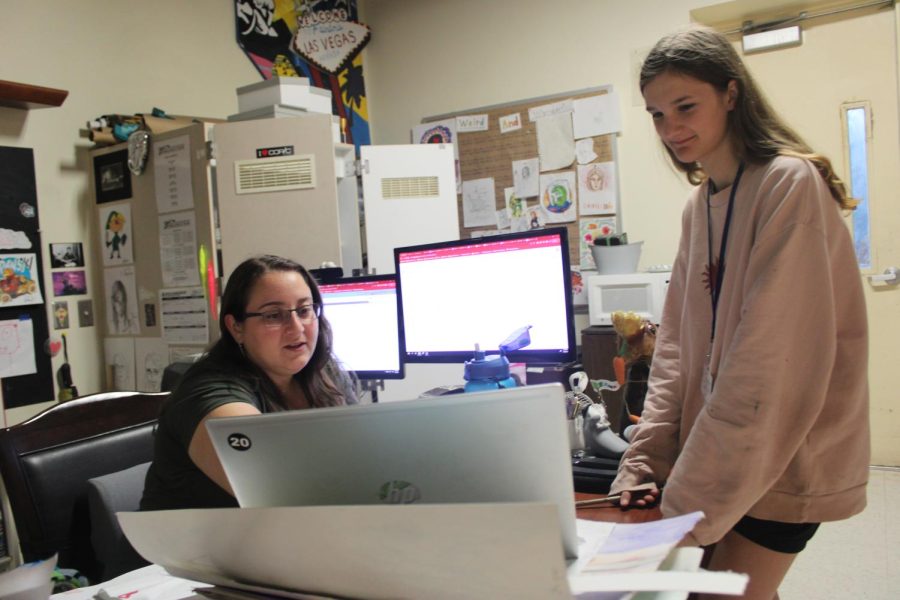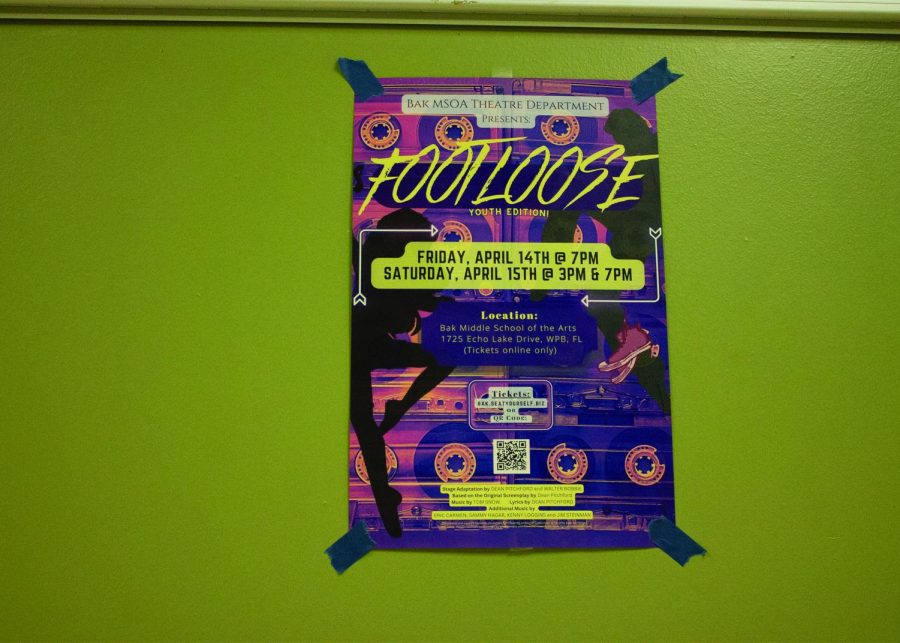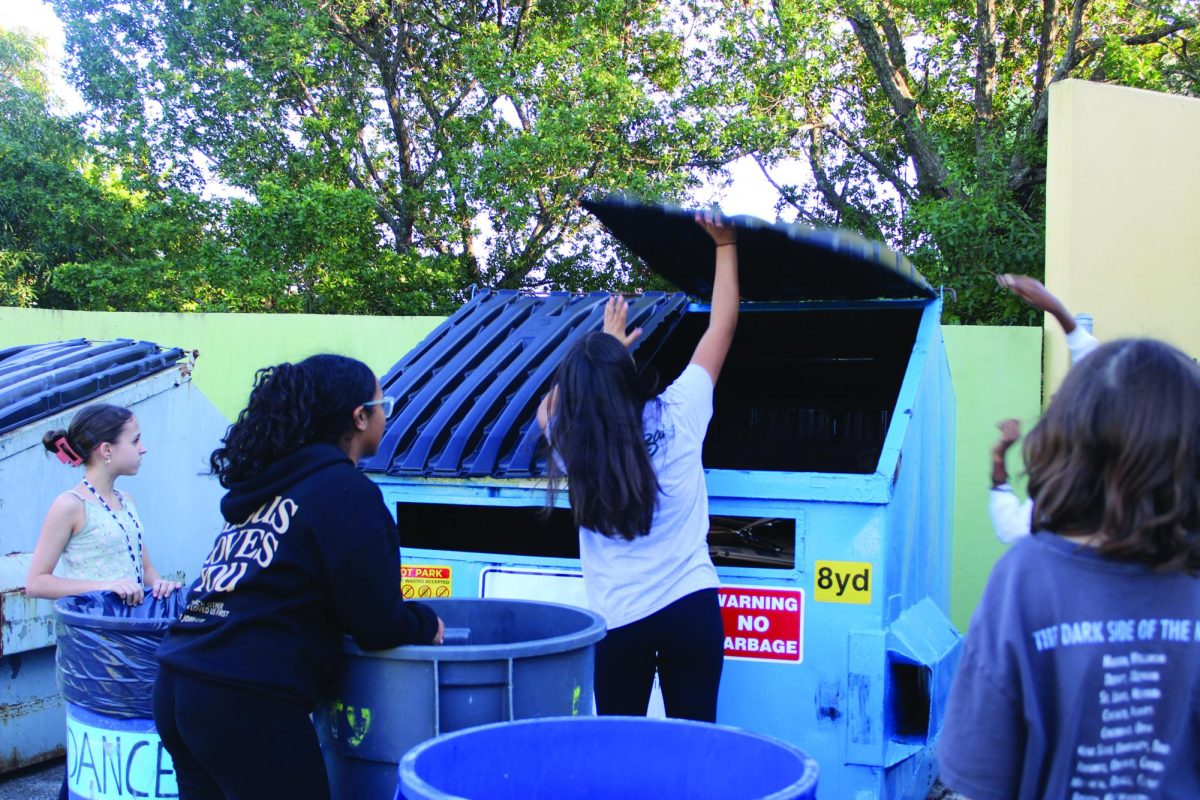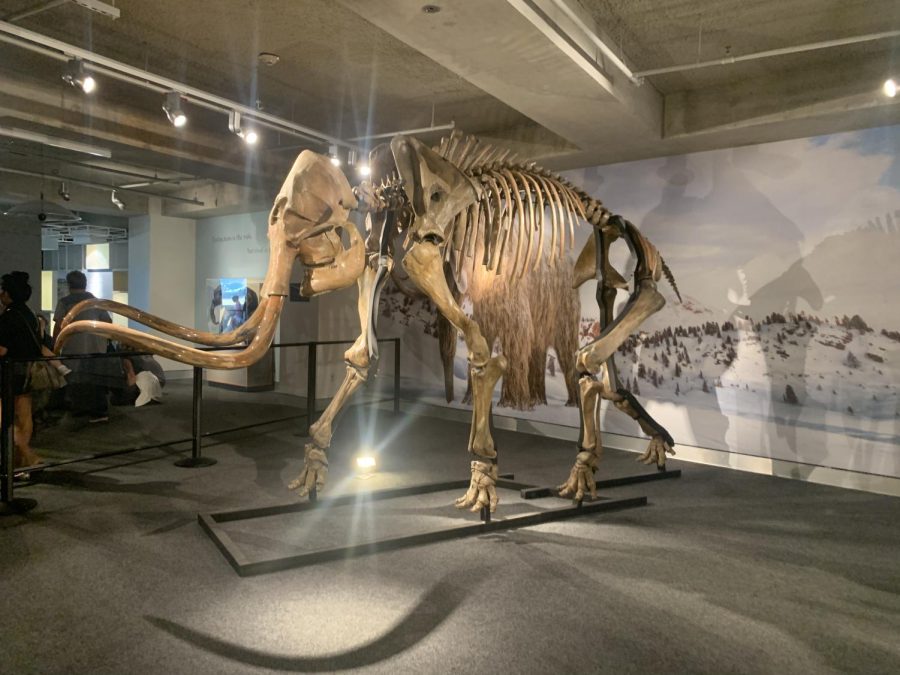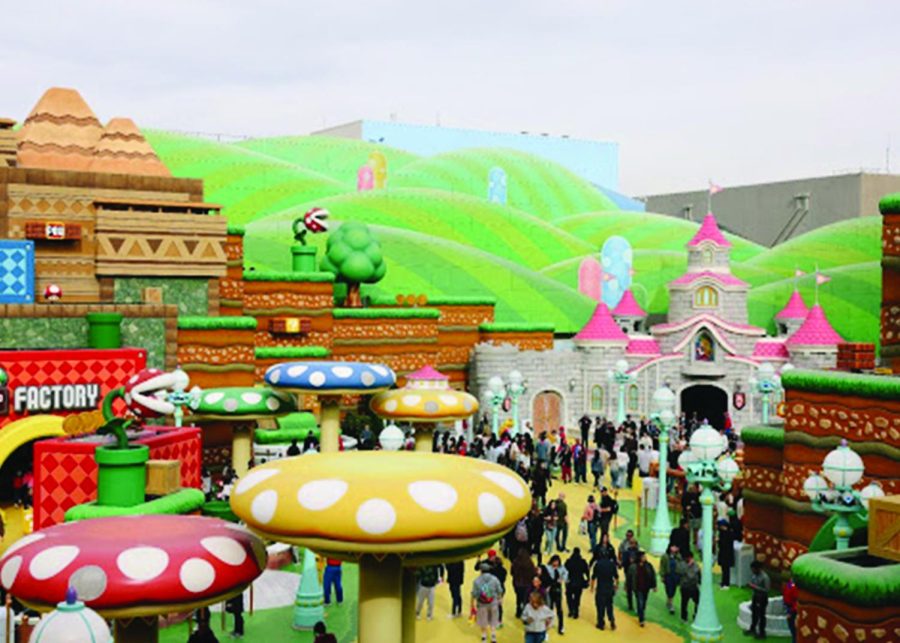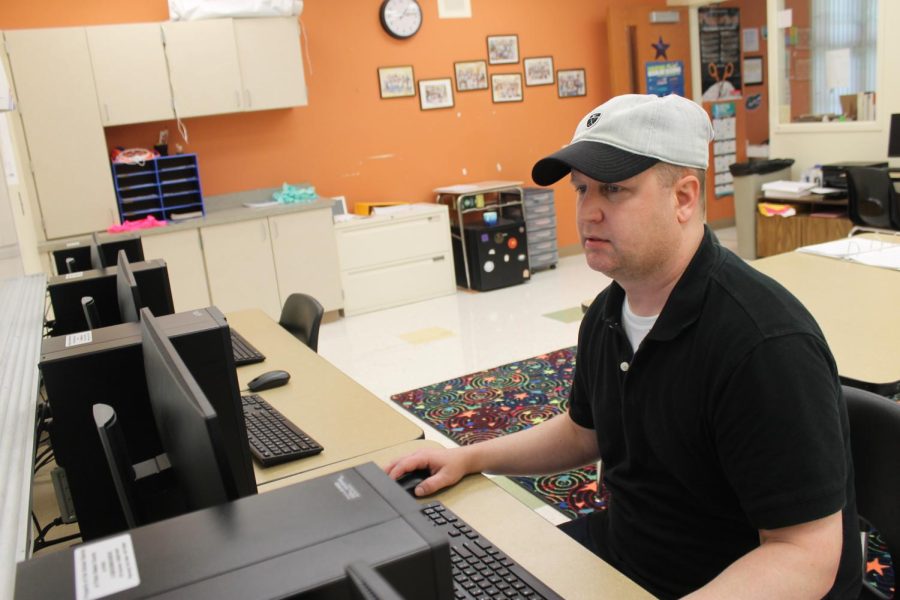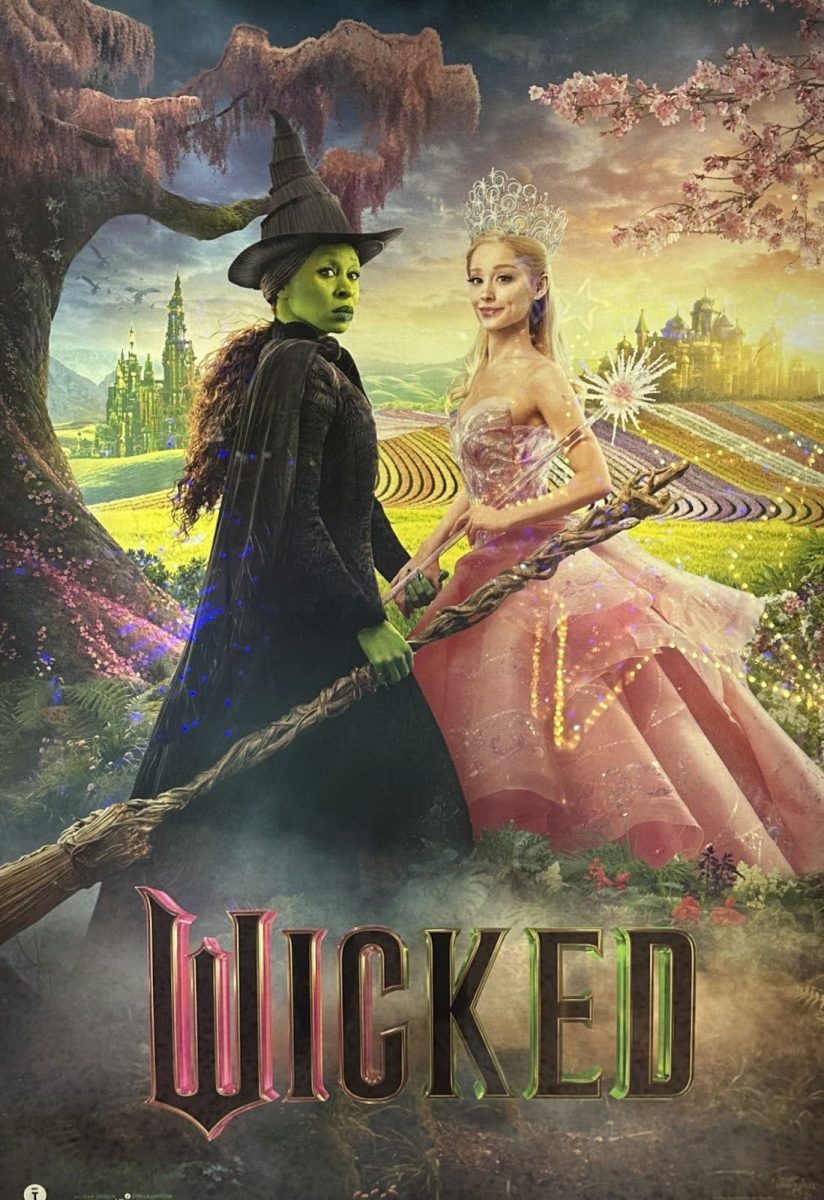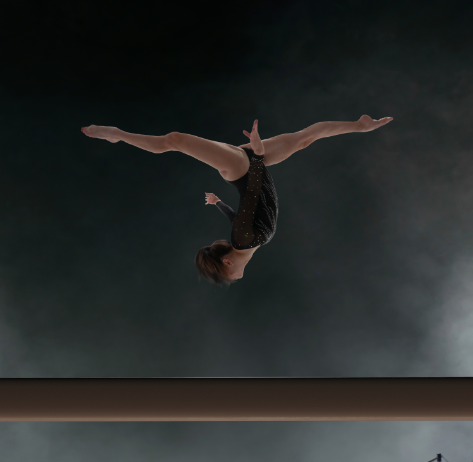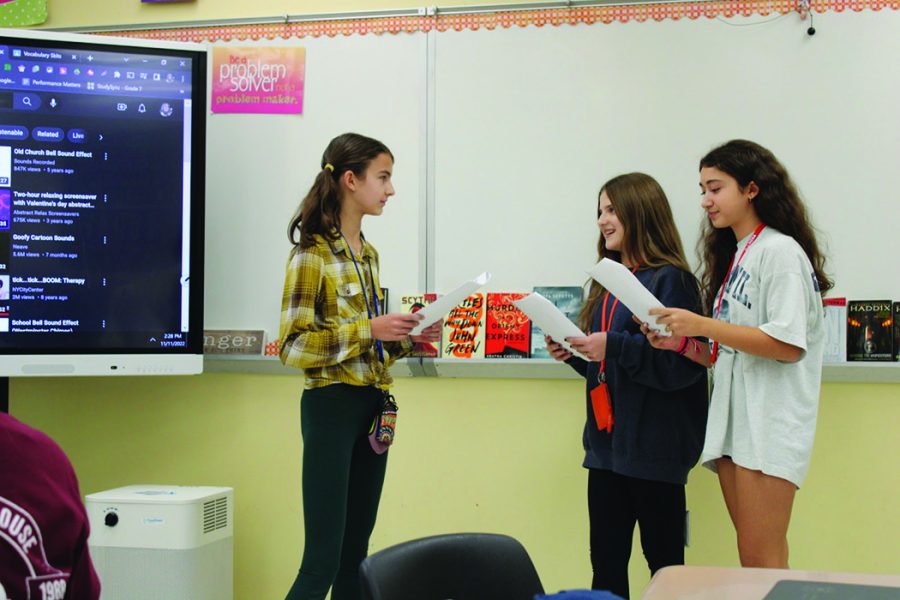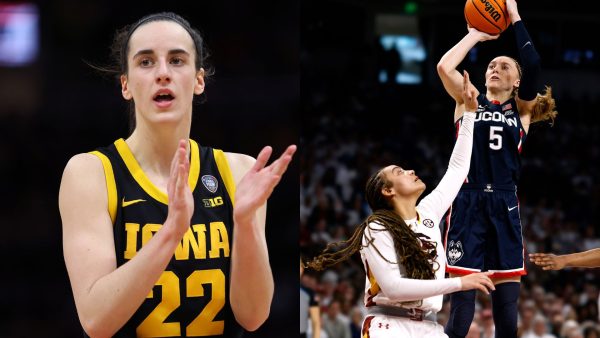‘Skits’ help students enhance vocabulary
Bringing out their inner thespian, students Leyla Yazar, Amelia Gallogly, and Violet Claggett perform their vocabulary skit. “Overall, I believed I played my character very well. Although the thought of laughing and ruining the performances was always in the back of my mind, everything came together the moment I hit that stage,” Yazar said. Photo by Landon D’Alessandro
Influential figures such as Martin Luther King Jr. and Mahatma Gandhi strived for innovation and a more modern society.
In the same manner, Christine Amico, seventh grade English language arts teacher, is taking her students through a new frontier of learning by advancing traditional vocabulary through theatrical art. Students this fall composed and drafted plays riddled with vocabulary words to illustrate a truly captivating tale.
Leyla Yazar, seventh grade visual major, and other students alike drew inspiration from pieces of authentic pop culture when composing their scripts.
“When my team and I were drafting our ideas, we wanted to come up with a concept that could easily incorporate vocabulary words into it. While brainstorming, we thought of the plot to ‘Mean Girls’ as it came to mind when thinking about our vocabulary words. Also, how it could be woven into a script easily, how much fun and relatable it would be to some people,” Yazar said.
Adversely, several other teams took an alternative route, straying away from authentic Hollywood classics, and referencing masterpieces of literature such as those by Shakespeare into their stories.
Furthermore, they incorporated their own modern twists to compliment the tales from yester years. One of these students was London Deyoung, seventh grade piano major, who merged the idea of medieval times into the twenty-first century.
“When creating my play, I wanted to make sure that it was extremely funny. Although not too much as I didn’t want to make myself and my team laugh. At the same time using all the vocabulary words,” Deyoung said. “Nevertheless, I didn’t want to make a generic medieval play like Shakespeare, so we added modern humor such as the pink sauce and popular dances like the Griddy.”
Although setting the scene drives emotional connection, students were prompted to underline the words as an essential part of the theatrical process. Other variables, such as pronunciation and context, play a prominent role in the purpose of the project.
“While creating our scripts we had to be careful that we were using the words in the context of the sentences,” Yazar said. “Going over them so many times really made those vocabulary words stick to me. We had to make sure that we were not just saying them to say them, but making the meaning and emotion of that word be displayed clearly.”
Throughout all the twists and turns, students stayed resilient. Traversing its audience into a thrilling adventurous tale. While immersing them into the language arts curriculum at hand.
“I enjoyed how interactive it was, and how you can work and collaborate with your friends, while also learning important skills such as teamwork,” Yazar said. “You really don’t get those opportunities on paper tests. I look forward to similar assignments like this in the future to enjoy with my friends.”




